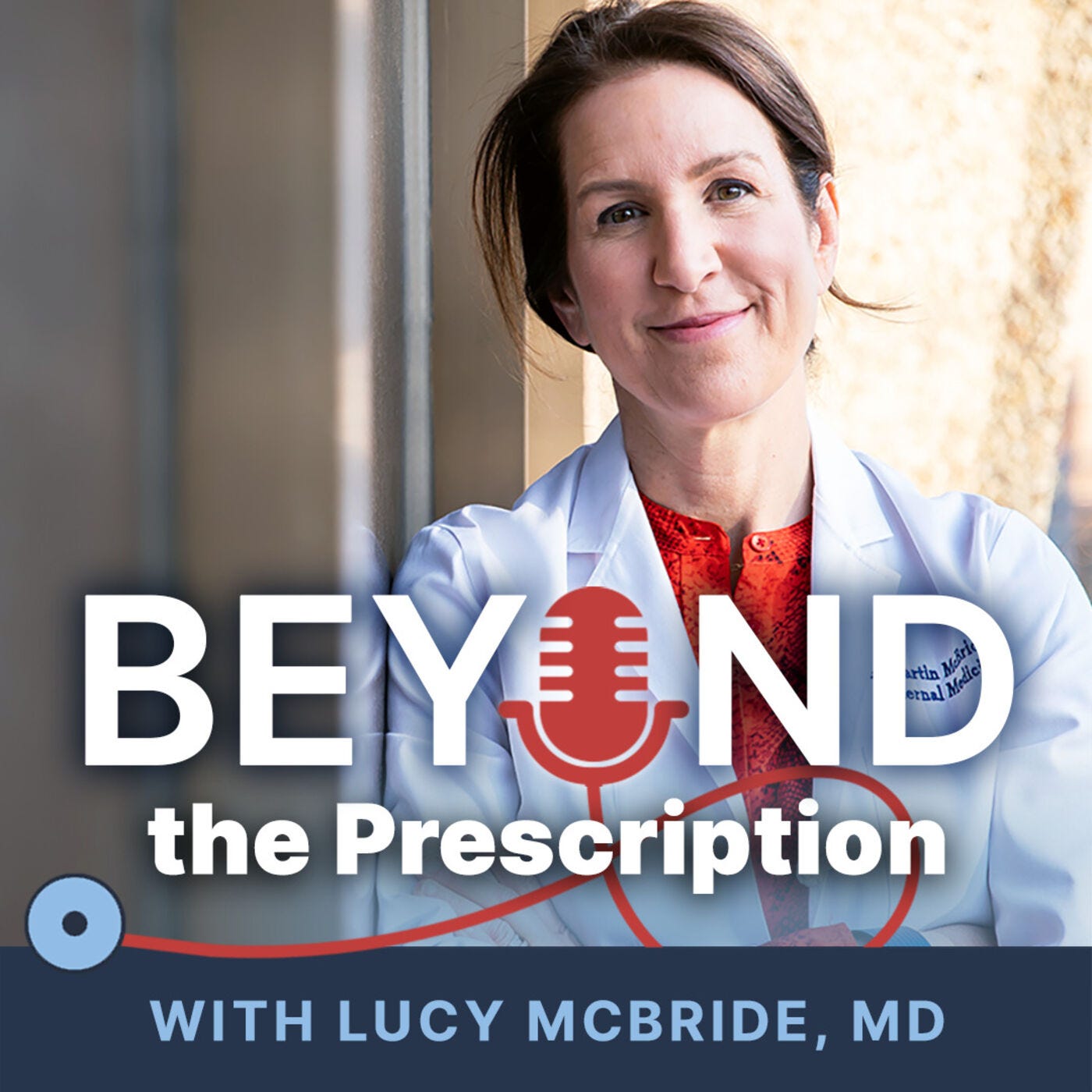Episode Description
Episode Summary
In this episode, Dr. Lucy McBride welcomes Dr. Sunita Puri for an intimate conversation about death, dying, and what it means to have a "good death." Dr. Puri, author of the critically acclaimed memoir "That Good Night: Life and Medicine in the 11th Hour," shares her expertise on palliative care while addressing the critical gap in how modern medicine approaches end-of-life conversations. The discussion explores the historical context of dying well, the problematic medicalization of death in contemporary healthcare, and practical guidance for both patients and families navigating end-of-life decisions. Dr. McBride brings a personal dimension to the conversation, sharing how Dr. Puri supported her through the sudden loss of her brother the previous year, illustrating the profound impact of compassionate end-of-life care.
Key Concepts
Redefining "Good Death" Beyond Idealized Visions
* The concept of "good death" has historical roots dating back to medieval Europe's "Ars Moriendi" (The Art of Dying) and ancient Buddhist and Hindu contemplations of impermanence
* Modern expectations often center on dying at home surrounded by loved ones, but this idealized vision can create unnecessary guilt and stress for families
* Financial and practical constraints make home death unrealistic for many families, as hospice doesn't provide 24-hour caregivers
* Good deaths are possible in hospitals, ICUs, and nursing homes when focused on dignity, comfort, and honoring the patient's values
* Flexibility and acceptance of circumstances, rather than rigid adherence to a "perfect" death plan, leads to better outcomes for patients and families
The Crisis of Medicalized Dying in Modern Healthcare
* The 1960s explosion of medical technology (iron lungs, CPR, ventilators) shifted medicine toward extending life at all costs, regardless of quality
* Healthcare systems default to aggressive interventions without adequate discussion of alternatives or patient values
* The "conveyor belt of technology" operates independently of what patients actually want or what would serve their best interests
* Medical training fails to prepare doctors for honest end-of-life conversations, leading to inherited patterns of avoidance and euphemism
* The gap between cure-focused medicine and compassionate end-of-life care leaves patients and families without adequate support for decision-making
Transforming Medical Communication Through Radical Honesty
* Traditional medical communication often provides facts without explaining their significance or implications for the patient's life
* Effective palliative care requires moving beyond "checklist" approaches (Do you want CPR? Feeding tube?) to understanding what gives the patient's life meaning
* Dr. Puri's approach involves explaining that "reversing a death is not the same as restoring a life," helping patients understand the reality of interventions like CPR
* Doctors must learn to sit with discomfort, witness suffering, and acknowledge uncertainty rather than defaulting to medical interventions
* Authentic communication requires doctors to examine their own reactions and fears about death, as "95% of doctoring is an inside job"
Practical Framework for Advance Care Planning
* Individuals should reflect on deaths they've witnessed, considering what seemed acceptable or unacceptable about those experiences
* Choosing a surrogate decision-maker requires careful consideration beyond automatic family hierarchies - sometimes friends understand one's values better than spouses or children
* The MOLST (Medical Orders for Life-Sustaining Treatment) form provides a concrete starting point for documenting wishes and should be displayed prominently for emergency responders
* Advance directives should be revisited after major health events, hospitalizations, or significant life changes rather than treated as one-time documents
* Effective planning requires honest conversations with primary care doctors, not just legal documentation, and patients should specifically request these discussions
Embracing Uncertainty and Impermanence as Spiritual Practice
* Buddhist and Hindu concepts of impermanence offer frameworks for accepting life's inevitable changes, including death
* Learning to "sit with uncertainty" becomes essential for both patients and healthcare providers in end-of-life situations
* Death anxiety can be addressed through traditional therapy, medications, and emerging research on psychedelics such psilocybin
* The practice of observing impermanence in everyday life (seasonal changes, relationship evolution) builds capacity for accepting larger uncertainties
* Healthcare providers must model comfort with uncertainty rather than promising false certainty or avoiding difficult conversations
Mercy and Dignity as Core Medical Values
* The concept of "mercy" encompasses both aggressive curative care when appropriate and allowing natural death when intervention would cause suffering
* Modern medicine must balance technological capabilities with recognition of human dignity and individual values
* The phrasing "allow natural death" reframes end-of-life care as supporting a natural process rather than withholding treatment
* Psychedelic-assisted therapy shows promising results for death anxiety in terminal patients, offering profound spiritual experiences that reduce fear
* Healthcare encounters become acts of love when providers center patient values and offer their authentic presence during vulnerable moments
About Dr. Sunita Puri
Dr. Sunita Puri is an Associate Professor of Medicine at the University of California, Irvine School of Medicine, where she serves as Director of the Inpatient Palliative Care Service. A Rhodes Scholar and Yale University graduate, she is the author of the critically acclaimed memoir "That Good Night: Life and Medicine in the Eleventh Hour," which examines her journey into palliative medicine and quest to help patients and families redefine what it means to live and die well. Her writing has appeared in publications including the New Yorker, Atlantic, New York Times, and Wall Street Journal. A sought-after international speaker, she has delivered lectures around the world on compassionate end-of-life care. In 2019, the Guardian created a mini-documentary about her work that has been viewed over 3.5 million times. You can follow her on Instagram and Twitter, and you can hear her previous conversation with Dr. Lucy McBride here.
Get full access to Are You Okay? at lucymcbride.substack.com/subscribe
